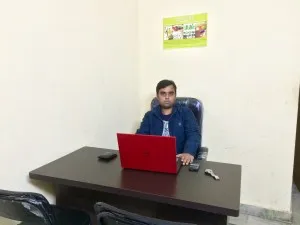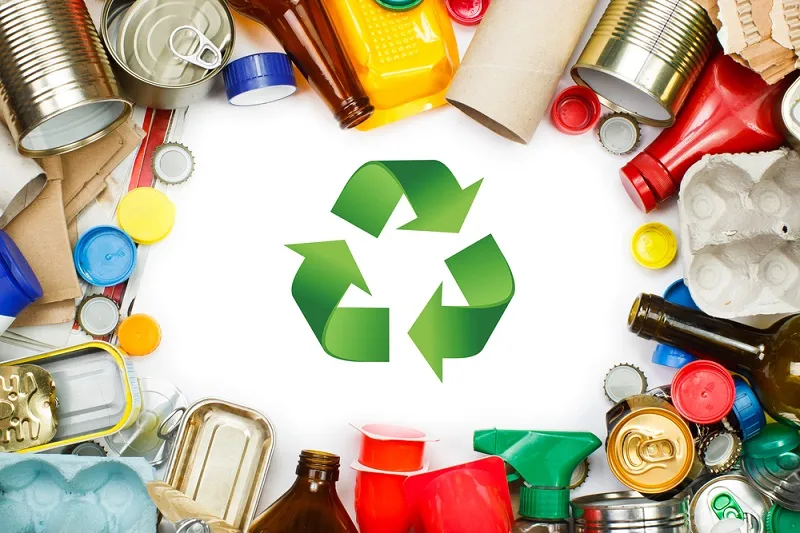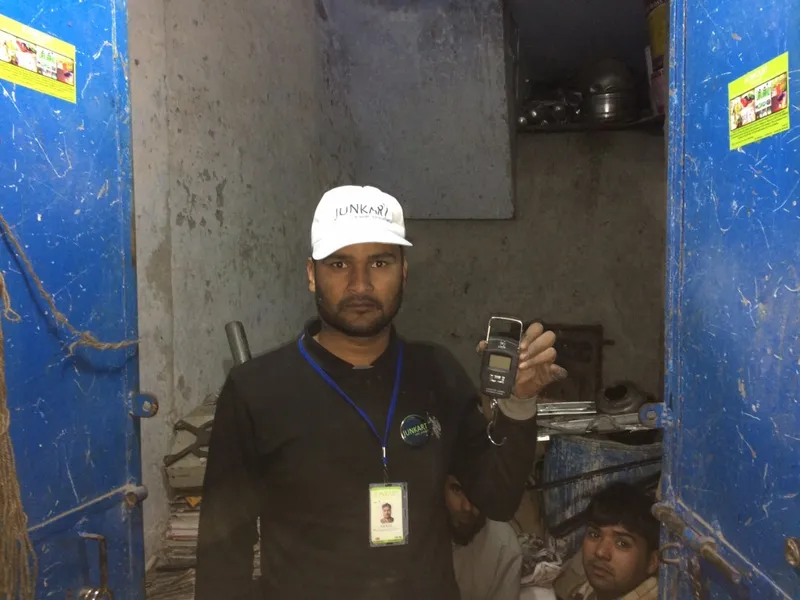How four young men are taking away the junk from your home, recycling it, and empowering the Kabadiwaala, all in one go!
Truth be told, we’re all hoarders. All of us have those pieces of décor, furniture, and other much loved unused dust gathering items we bought on a whim. Some things we buy turn vestigial, but we have no idea how to dispose them. We don’t throw it because we spent money on it. What if someone offered to take away the junk, made sure it got recycled, and offered money in return?
Niraj Gupta, Shailendra Singh, Prashant Kumar, and Shubham Shah came up with a solution to fix this very common problem while being socially conscious and encouraging recycling. Here’s how they did it.
Weekend Works and JunkArt

Niraj is a graduate from the Shri Ram College of Commerce (SRCC), Delhi. Along with his co-founders, Niraj started Weekend Works while he was still in college. They would mostly work on projects during weekends, since they had to attend college during the weekdays.
“Whenever I would visit someone’s place, there were always these things that were of no use and people still kept them because they didn’t know what to do of it. At the same time, while we did have a company of our own, we felt like we could change the equation in a way that benefits the person who is housing trash and the ones taking care of it,” says 22-year-old Niraj.
Started in October 2015, Delhi-based JunkArt is a service which helps anyone who wishes to sell recyclable scrap in their homes in an organised and fair manner.
Niraj says,
The traditional setup of a Kabadiwala (scrap collector) roaming in the streets and shouting for junk is very well-known and understood. Also, it has remained the same for so many decades. This sector is untrusted, unorganised, inefficient, and ripe for disruption.

While the JunkArt team was well aware of the customer side of the problem, being one themselves, they needed someone to handhold them through the vendor side of scrap collection and selling. The team began interacting with Kabadiwalas. Akbar, one of the scrap collector, showed keen interest in JunkArt and helped the team in understanding how the end-to-end process works. Niraj adds, “We constantly read up on market reports, government regulations for collection, storage and disposal of scrap and recyclable materials.”
The model of operation
A customer can send the JunkArt team a request through the website. A vendor (Kabadiwaala or scrap dealer) close to the customer’s location is assigned for pick up. The vendor reaches out to the customer for confirming the pickup. While most scrap collectors say no to some of the items, JunkArt accepts all recyclable material – newspaper, books, paper, iron, plastic aluminum, etc. The price of the items is decided between the customer and the JunkArt team. The vendor pays the customer in cash and coupons.

Customers have the option to donate the money to an NGO that has tied up with JunkArt. Niraj adds, “This initiative is directed towards Swachh Bharat, which is a collective effort.”
They have also tied up with NewspaperKart, an online newspaper subscription startup, and are in talks with other businesses who produce recyclable scrap frequently.
Working with the existing system instead of building a new one, Niraj says, “With the help of technology, we are trying to automate the system of scrap collection. Working with the Kabadiwalas, we are not interrupting the existing ecosystem but enabling them to use technology to get over the scrap collection problem.”
Niraj also understands that to scale operations nationwide quickly, it is necessary to work with the Kabadiwalas who are trained at their jobs and already have a huge network, both of which are critical to making JunkArt a pan India success.
Recently, the team grabbed the second spot at the all India Business Competition, MERAKI, conducted by the Fortune Institute of International Business.
Revenue and impact
JunkArt is currently bootstrapped. For now, their services are free for both sellers and scrap vendors. Niraj tells us that they do plan to introduce a minimal transaction fee from the vendors in near future. He adds, “We also earn from the coupons and vouchers our customers spend.”
Till now, Niraj says, they have collected three tonnes of recyclable waste, which has enabled 15 vendors in South Delhi. He adds,
The vendors with whom we work, mostly do not have a very high income or profit margin. All they earn is from the volume they transact. We were expecting the average transaction value in the range of Rs 100–150, but we’ve been pleasantly surprised. It is Rs 677 at the moment! This surge has directly impacted the earnings of the vendors.

Industry insight
The last three years have seen a bunch of startups sprouting in the waste management and recycling category. Chennai-based Paperman was one of early social enterprises dedicated to creating awareness around recycling right from 2010. Founded in 2013, Banyan, another socent, primarily focuses on weeding out inefficiencies out in the municipal solid waste management system. Noida-based Attero Recycling raised Rs 100 crore in 2014 and is a success story in this space. Chennai-based Kabadiwalla Connect garnered attention and a sizeable grant from the World Economic Forum. E-waste recyclers, Karma Recycling also raised an undisclosed amount in July 2015. Some of the other newer B2C startups like Kabadi Express, Scrapcrow Pom, EnCashea have followed Bhopal-based Kabadiwala’s strategy of incentivising the customer by paying for the scrap collected from the customer. Bengaluru-based Binbag, Kolkota-based e-waste management platform Avshesh, Vidisha-based BhangaarChand, Gurgaon-based Greenobin are some of the other players in the space.
India recycles only about 20 per cent of its waste paper. Though a bulk of the 80 per cent of waste paper goes into “Indian” lifestyle aspects like wrapping, packing, etc., they eventually end up in dumping grounds. With the growing demand, we continue to axe more and more trees – the current demand of 10 million tonnes annually is projected to more than double by 2025.
Way forward
These four young men hold day jobs as well and hence managing JunkArt can sometimes be overwhelming. Niraj says that managing funds for brand awareness is another challenge. He says, “Brand awareness is key to people recognising our value proposition and trust us.” Niraj lists another key challenge as the initial effort required to convince scrap collectors to get onboard.
In the next five years, Niraj hopes that JunkArt will be the go-to marketplace for recyclable materials ecosystem across India.







